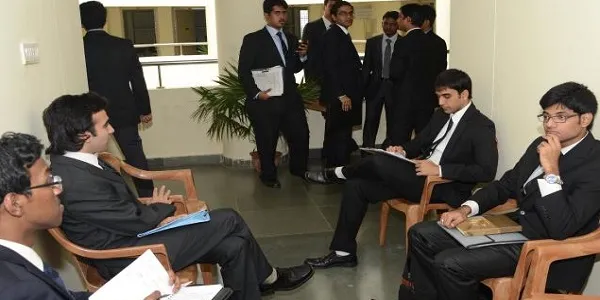Startups grabbing talent from tier one and tier two colleges in India
Startups are not necessarily hiring only from elite colleges in India – usually comprising the IITs and IIMs – but have become omnipresent across placement drives even in tier two colleges.

The story so far – hiring from tier one colleges
At the IIT-Madras campus placements in December 2014, some 800 to 900 students interviewed with companies from across the country. The placement secretary of IIT-Madras, Vishranth Suresh, says that apart from the big names in the market, there were almost 30 to 40 startups present at the placement drive.
Some of the notable startups included Housing.com, Indus Insights, Ola Cabs, Flipkart, and Snapdeal, which made over 100 offers (approximately 13 per cent of the student pool) at the allocated interview slots.
Placement committee members usually decide the interview slots based on criteria such as pay, relationship with college, and gross taxable income, etc. “Startups don’t get the first slots because they do not pay on par with investment banks or consultancy firms,” said Vishranth. Startups offer compensation packages between Rs 12-15 lakhs per annum, whereas others offer in the range of Rs 17-18 lakhs per annum.

Last year, some of the startups that registered, including Flipkart and Snapdeal, did not attend the placement drive because they did not get the first few slots.
According to a placement committee member at IIT-M, the roles that startups offer are either core technology roles (that pay an average of Rs 15 lakhs per annum), or business development roles (that pay an average of Rs 12 lakhs per annum). Whereas, Stayzilla and UrbanLadder together recruited around 20 students with added perks such as ESOPS (employee stock options).
The twist in the story - hiring from tier two colleges
Startups are now hiring in bulk across tier 2 colleges in Mumbai, Pune, Chennai, Bangalore, and other cities in India.
Sandeep Meshram, placement officer of the College of Engineering Pune (COEP), says that a new wave of startups have been recruiting from multiple colleges in and around Pune in the last two years.
COEP’s most recent placement drives saw startups like Carwale, mysmartprice.com, Browntape Technologies, Resfeber Labs and many more in addition to Flipkart, Myntra, and Snapdeal – which no longer really fall under the startup category.
Startups made around a hundred offers in COEP this year, where the average salaries ranged between Rs 4.5 lakhs and Rs 10-12 lakhs per annum. These numbers are said to increase exponentially after the first few years of employment.
This is not a location-centric trend, but a universal trend in India. “We see a lot of startups coming to our colleges these days, and they are very picky. They only want a certain skill set, and hire only when the candidate is a perfect fit,” says Y C Suresh Kumar, placement officer, SRM University, Chennai.
What do the startups say?
Housing.com, a Mumbai-based online real estate startup, founded by a group of IITians, made about 100-120 offers across colleges this academic year.
A Housing.com spokesperson says: “It has been an exciting experience for us, and we were received with welcoming arms at campuses; we were overwhelmed by the response. Additionally, the background of the founders of the company ensures that IIT graduates fit well into the culture of our company.”
The largest startup employer across colleges this year was Ola Cabs, which recruited almost 120 students from the IITs, and 30 students from top management schools for business development roles across the country.
A top-level hiring manager from Ola Cabs in an email interview with YourStory says: “We are building a futuristic personal transportation solution and that would mean bringing passionate as well as the talented individuals onboard, both for technology and business. We have grown from 15 cities to 90 cities this year, and we expect to be in over 200 by the end of next year. Students who are talented and passionate about working with Ola bring in a fresh perspective and value.” (how Ola sped to top gear)
The newly empowered student community
There are various causes for this hiring spree by startups across the country. One huge factor, apart from the obvious increase in number of startups, is the drastic change in the way students perceive them these days. (how startups have become mainstream)
Ajish Nair, a final year M.Tech graduate from COEP, has a cushy job offer from Credit Suisse, but he is still scouting for an alternative startup job. What possibly could motivate someone to decline a comfortable job offer for a risky startup job? Explains Ajish: “It matters more what kind of work you do, rather than where you do it. The experience you gain in a startup over a short span of time is invaluable, and the responsibilities that are given to you accelerate your learning multiple folds.”
Also, the knowledge about venture-backed businesses has helped reduce the anxiety regarding job security to a great extent. “More and more students are willing to work for startups because there is a lot of awareness now, and the stigma of working for one has drastically reduced. Also, students know that VC-backed startups have money, and there is no reason to worry about job security,” says Vishranth, who got selected by HyperVerge, a startup which works on multiple applications of computer vision.
In the midst of the hiring frenzy that is increasing across all tiers of colleges, there is a small set of students who stays away from any kind of placement.
The concept of deferred placements has played its part in making the student community take its time to decide. Students, who have started or plan to start their own ventures, are allowed to defer registering for the placement drive and seek campus placements the following year, or the year after that. Dozens of students opt for this exemption every year.
Recommended read: Funding report for 2015 Q1 – startups raised the highest ever amount for a single quarter







